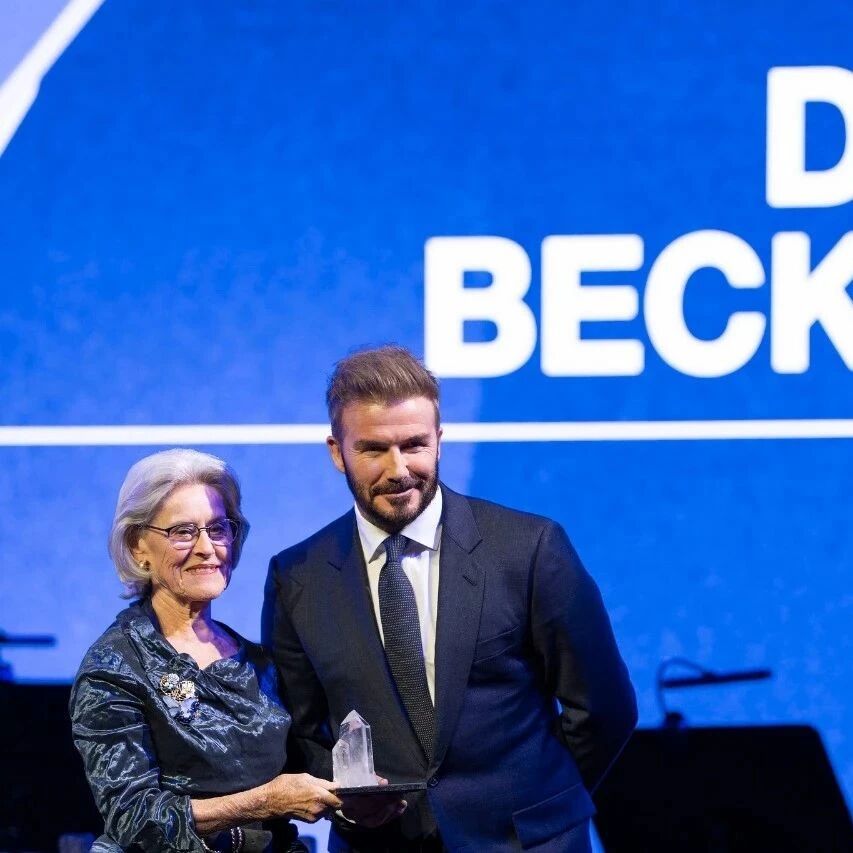

Against the backdrop of slowing global economic growth, countries like India and Bangladesh are demonstrating resilience.
Image source:Vishal Buthani/Unsplash
Piyachart Arm Isarabhakdee
CEO of BRANDi and Companies
Against the backdrop of a stagnant global economy, entrepreneurship offers a powerful pathway to growth.
By confronting risks head-on, driving innovation through clear goals, and fostering ecosystem support, entrepreneurs possess the essential capabilities to tackle real-world challenges.
Countries like India and Bangladesh have provided valuable lessons.
At first glance, the global economic outlook appears bleak. The World Bank forecasts that economic growth will remain at a modest 2.7% for 2025–2026—indicating that the global economy is merely "plodding along," rather than picking up momentum.
However, against the backdrop of overall stagnation, economies like India and Bangladesh are thriving at an impressive pace. These "localized advancements" send a crucial message: we still have a strong chance of achieving growth. So, how can we unlock this growth potential, drive further expansion in an uncertain world, and prepare for the future? My answer is entrepreneurship.
Complexity has become the new normal.
The rules of the game have changed. In the past, companies followed a clear path of development—simply by adhering to best practices and boosting efficiency. But today, we find ourselves in a multipolar world, where new fault lines are constantly emerging, geopolitical tensions are escalating, supply chains are crumbling, and alliance dynamics are shifting rapidly—all of which are blurring the boundaries of predictability.
In a world like this, there’s no longer a single “right” model. Traditional businesses may still manage to stay afloat, but the room for error is steadily shrinking—driven by uncertainty that has now become a permanent feature of the landscape. Conventional approaches simply no longer work. So, how should we navigate this new reality? Clearly, we can no longer rely on “operational excellence” as we did in the past. Research shows that in today’s environment, companies need to embrace risk-taking boldly and think creatively. In my view, entrepreneurs are uniquely equipped to thrive in this kind of setting.
Driving Revenue Growth: A Must-Do for New Businesses
One of the most promising models we’re seeing today is the rise of businesses that aim to generate revenue while driving positive impact. These enterprises embrace an "impact-to-revenue" approach, developing solutions that simultaneously address both commercial and societal challenges. For instance, imagine an agri-tech platform leveraging AI to help small farmers boost yields while minimizing resource consumption—or consider emerging circular economy startups that transform waste materials into raw ingredients for creating innovative new products. These aren’t fleeting initiatives; they’re genuine businesses that deliver measurable value and tackle real-world problems head-on.
This model balances profit-seeking with purpose, aligning seamlessly with the capital principles of stakeholders. According to the Harvard Business Review, large companies that embrace this philosophy can achieve long-term benefits—such as customer trust, investor confidence, and enhanced employee engagement. Meanwhile, purpose-driven entrepreneurs are poised to build businesses that are not only more resilient and adaptable but also scalable for sustained growth.
Risks are rising, but opportunities are also growing.
Businesses face significant risks such as inflation, resource constraints, and increasingly severe climate events. Yet, opportunities still abound. Many developing regions lack traditional infrastructure, making the need for innovation even more urgent. Clean energy startups in Southeast Asia, fintech platforms in Africa, and digital health solutions in Latin America are all gaining momentum—driven by their ability to tackle local challenges within a global context. These opportunities aren’t just for the most established players; they belong to the most adaptable companies. Only those that can look beyond short-term volatility and focus on long-term value creation will attract capital aligned with their goals, retain mission-driven talent, and build organizations ready to thrive in the future.
Making entrepreneurship a national strategy
We often associate entrepreneurship with founders and startups, but in reality, the entrepreneurial mindset can be applied far more broadly. Research shows that fostering agility, ownership, and curiosity across industries and organizations is key to driving growth and building resilience. Forward-thinking governments are going even further by embedding entrepreneurship as a national strategy to fuel inclusive growth.
In India, the "Startup India" initiative is building a robust policy framework for innovation, providing regulatory support, access to funding, and opportunities to integrate into global markets. Meanwhile, Bangladesh has also made significant progress by empowering its Small and Medium-sized Enterprises (SME) sector and supporting women-led businesses in both urban and rural areas. A key lesson from this experience is that entrepreneurship doesn’t thrive in isolation—it flourishes when nurtured within an ecosystem that includes strong backing from the public sector. Such support encompasses:
Securing funding, especially early-stage and mission-driven investments;
Digital infrastructure and connectivity;
A favorable regulatory environment and public-private partnerships;
A talent development pathway that prioritizes both technical skills and humanistic literacy.
Entrepreneurial thinking applies to everyone.
Today, having an entrepreneurial mindset doesn’t mean holding a specific title—it’s a way of thinking. Many of the most transformative innovations actually come from "intrapreneurs" within large corporations: individuals who aren’t afraid to take risks, challenge the status quo, and develop fresh, groundbreaking solutions. Google’s famous "20% rule"—which allows employees to dedicate one day each week to working on passion projects—stands as a perfect example of this approach.
This is especially critical for industries facing disruption—ranging from transportation and energy to healthcare and education. As we prepare to embrace the new economy shaped by climate adaptation and cutting-edge technologies, agility must become embedded in our culture, rather than being reflected merely in our organizational structure.
In an era defined by complexity and uncertainty, entrepreneurial spirit is more essential than ever. Entrepreneurs are the ones who will forge new paths of growth—they challenge existing assumptions, navigate through ambiguous and turbulent waters, and take decisive action. This is precisely why I remain optimistic: while the challenges are significant, the opportunities are equally vast. Those who embrace the present moment and strike a balance between profitability and impact, resilience and innovation, won’t just survive—they’ll emerge as leaders in their fields.
Entrepreneurial spirit can help us prepare for the future, enabling us to create the life we envision.

The above content solely represents the author's personal views.This article is translated from the World Economic Forum's Agenda blog; the Chinese version is for reference purposes only.Feel free to share this in your WeChat Moments; please leave a comment at the end of the article or on our official account if you’d like to republish.
Translated by: Di Chenjing | Edited by: Wang Can
The World Economic Forum is an independent and neutral platform dedicated to bringing together diverse perspectives to discuss critical global, regional, and industry-specific issues.
Follow us on Weibo, WeChat Video Channels, Douyin, and Xiaohongshu!
"World Economic Forum"


